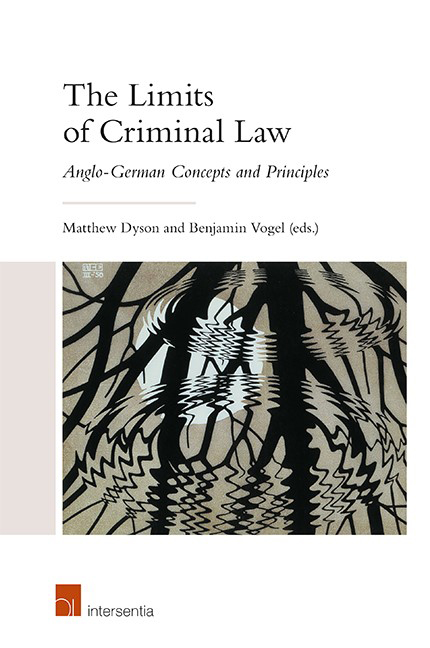Book contents
- Frontmatter
- Preface
- Contents
- List of Cases
- List of Abbreviations
- List of Contributors
- Chapter 1 Introduction
- PART I CORE PRINCIPLES OF CRIMINAL LAW
- PART II CRIME AND TORT
- PART III CRIME AND MEDICAL
- PART IV CRIME AND REGULATION
- PART V ADMINISTRATIVE SANCTIONS
- PART VI ALTERNATIVE ENFORCEMENT
- PART VII COUNTER-TERRORISM
- PART VIII CRIME AND INTELLIGENCE
- PART IX CONCLUSION
- Index
- About the Editors
Chapter 18 - Alternative Enforcement Mechanisms in Germany
Published online by Cambridge University Press: 11 February 2021
- Frontmatter
- Preface
- Contents
- List of Cases
- List of Abbreviations
- List of Contributors
- Chapter 1 Introduction
- PART I CORE PRINCIPLES OF CRIMINAL LAW
- PART II CRIME AND TORT
- PART III CRIME AND MEDICAL
- PART IV CRIME AND REGULATION
- PART V ADMINISTRATIVE SANCTIONS
- PART VI ALTERNATIVE ENFORCEMENT
- PART VII COUNTER-TERRORISM
- PART VIII CRIME AND INTELLIGENCE
- PART IX CONCLUSION
- Index
- About the Editors
Summary
Criminal laws are not only enforced in criminal courts and by imposing the criminal punishment of imprisonment. In addition, the German criminal justice system relies heavily on alternative enforcement mechanisms. In this chapter, I will discuss the most prominent alternatives to classic criminal conviction-based enforcement of generic criminal wrongdoing, and put specific emphasis on those alternatives which are closely intertwined with what may be labelled as criminal justice.
INTRODUCTION
The typical societal view of criminal justice consists of ‘bad guys’ being caught by the ‘cops’, of public trials, possibly appeals, and ultimately incarceration. In legal terms: once a criminal violates a pre-established criminal statue and this becomes known to the authorities, a criminal investigation is started, which leads to a formal indictment, then a public trial, culminating in a conviction (or, in rare cases, an acquittal), and then to the execution of the punishment specified in the judgment (see figure 1). This unidirectional and singular view of German criminal justice is also shared by criminal law students and university and vocational training courses on criminal procedure alike, as well as by late US Supreme Court Justice Scalia, who stated that the German criminal justice system ‘reflects an admirable belief that the law is the law, and those who break it should pay the penalty provided.’ The last three elements (public trials, appeal and incarceration) are also prominent in the German literature on criminal procedure, which focuses to a large extent on the trial and appeal stages of criminal procedure. All this reflects the deeply rooted view that criminal punishment in general and imprisonment in particular is the most severe sword in the hand of the state, which therefore needs to be constrained by material limitations to criminalisation and procedural guarantees including the right to a fair trial.
Reality differs. First of all, far from all crimes are brought to the attention of the authorities. Second, only 8.4 per cent of the roughly 5.2 million criminal cases concluded by German public prosecutor offices in 2016 resulted in a formal indictment.
- Type
- Chapter
- Information
- The Limits of Criminal LawAnglo-German Concepts and Principles, pp. 365 - 396Publisher: IntersentiaPrint publication year: 2020

